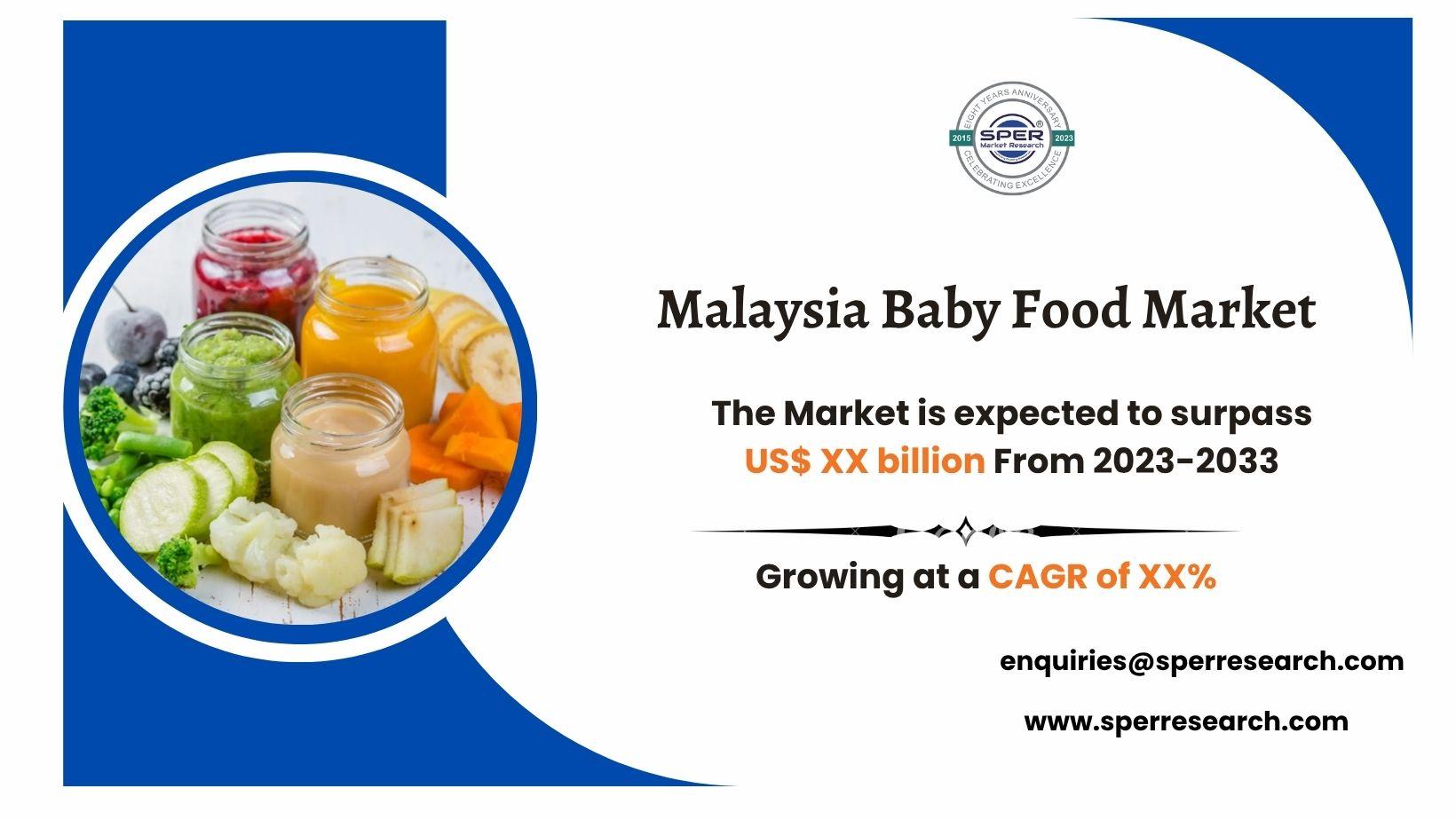Soft, easily digestible food items designed especially for babies and toddlers between the ages of four months and two years are referred to as baby food. These foods are made to satisfy the special dietary requirements of developing infants making the switch from milk to solid foods. Pureed fruits, vegetables, cereals, meat, and dairy products are all considered baby food. These foods are frequently enhanced with vital vitamins and minerals such as calcium, iron, and DHA. It comes in a variety of packaging, including powdered mixes, jars, and pouches. With the increased demand for organic, preservative-free, and allergy-conscious baby food options, safety, convenience, and nutrition are important considerations in its manufacture.
According to SPER market research, ‘Malaysia Baby Food Market Size-By Product- Regional Outlook, Competitive Strategies and Segment Forecast to 2033’ state that the Malaysia Baby Food Market is estimated to reach USD XX billion by 2033 with a CAGR XX%.
Drivers:
The market for baby food in Malaysia is growing as a result of growing urbanization and disposable incomes, which enable parents to purchase high-end, organic newborn nutrition products. Particularly among educated, dual-income homes looking for simple, ready-to-feed products like cereals, wet meals, and infant formula, there is a growing awareness of early childhood health and proper nutrition. Access to a wider range of infant food brands, such as halal-certified and clean-label options catered to regional tastes, has also increased due to the quick development of e-commerce and mobile buying platforms. Additionally, the promotion of fortified and preservative-free infant food is being greatly aided by internet marketing and parental influencers.
Request a Free Sample Report: https://www.sperresearch.com/report-store/malaysia-baby-food-market.aspx?sample=1
Restraints:
There are a number of obstacles facing the Malaysian baby food market, despite the high demand. Access to high-end and organic items is restricted by price sensitivity among lower-income groups. Even if per-child spending rises, the nation's declining birth rates present a long-term obstacle to market volume development. Since many parents believe that homemade infant food is healthier and fresher than boxed options, cultural preferences for it are still prevalent. Additionally, a few major international brands control a substantial portion of the market, making it challenging for smaller local producers to compete. Strict legal requirements for food safety, labeling, and marketing also make production and compliance more difficult and expensive.
Selangor dominates Malaysia’s baby food market due to its status as the wealthiest and most densely populated state with high urbanization, strong retail infrastructure, and concentration of both local consumers and baby food companies headquartered in the Klang Valley region. Some of the key market players are Abbott sdn bhd, Danone Dumex sdn bhd, Dutch Lady Milk Industries bhd, Fonterra Brands Malaysia sdn bhd, Mead Johnson Nutrition sdn bhd and others.
For More Information, refer to below link: –
Malaysia Baby Food Market Demand
Related Reports:
MEA Baby Food Packaging Market
North America Organic Baby Food Market
Follow Us –
LinkedIn | Instagram | Facebook | Twitter
Contact Us:
Sara Lopes, Business Consultant — USA
SPER Market Research
enquiries@sperresearch.com
+1–347–460–2899



